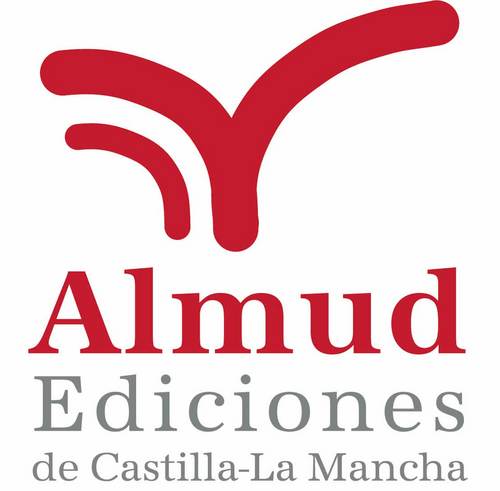In late 1962 I came across a weekly magazine at a press stand which had been recently launched with a very optimistic title: Triunfo, Triumph. I opened its pages and could not believe what I saw, or rather, I doubted if I was really in Madrid, Spain. What I had before my eyes was a colourful collection of articles and pictures on the most varied of subjects. They were all focused on the information and criticism of cultural news from Spain and the world, international politics and commentaries on the social and economic realities of the time, including articles on the Catholic religion following the guidelines given by the Vatican Council II that was taking place in Rome at that time. Many important writers of the time wrote articles for Triunfo, but most of the magazine was written by two journalists, Eduardo Haro-Tecglen, a specialist in foreign affairs, and Manuel Vázquez Montalbán, who wrote about varied subjects under several pseudonyms. Very prominently, Triunfo offered humour, in graphics and in printed articles. In a hilarious section called Celtiberia Show, written by the journalist Luis Carandell, the reader could find plenty of extravagant happenings, examples of the “greasy culture”, as he called it, of traditionalist Spain. It consisted entirely of authentic material, taken mostly from provincial newspapers, often contributed by the readers themselves. They challenged the most daring invention. One of them read: “Mister Thief, please give back the documents and the money you stole from my car (plate number). You can keep the wallet. Don’t be such a S. of a B.”
The first number of the renewed magazine I had in my hands had appeared in June 1962, but Triunfo was older than that. It had started in 1946 as a periodical specializing in the theatre and the cinema. These had always been the main subjects, but little by little the magazine began to explore foreign policy and even some internal matters, provided that the authors could find ways to circumvent censorship. From 1966 on, a relatively liberal Law for the Press permitted Triunfo to expand and breathe more easily. It had already become a very suc cessful project. By 1964 it was selling 56,000 copies and had more than one thousand subscribers. Was it possible? Incredibly, yes, it was. Triunfo had started and was growing under the menacing eyes of the powers that be. They suspended its publication only twice and prudence obliged the writers to use a sophisticated meta-language in order to avoid attacks on the regime that the censors could consider too explicit. But Triunfo survived and provided Spaniards with a cultural and political reference point in a social and international environment that was creating the conditions for the eventual arrival of democracy. In 1962, the Franco regime was undergoing a profound economic transformation. After long years experimenting with “autarky”, an exotic economic system that only increased the poverty and backwardness of a country ravaged by the civil war, Franco put a new class of young technocrats and economists in power who convinced the dictator to adopt new policies of stabilization and development through a programme launched in 1959, which liberalised the economy and opened up the countryto foreign markets. The result of this so-called stabilization plan was the end of traditional agriculture, urbanization, massive emigration to Europe and new habits of consumerism. Furthermore, as a result of new communications with the outside world, something that was seen as the most dangerous by the most reactionary forces in the regime was introduced: an ambitious project to promote tourism as a source of income for the State. It attracted millions of Europeans and Americans to Spain, all of them ready to enjoy the natural and cultural beauties of a country that was rich in both …and also very cheap and pleasant to visit. It was indeed a curious contradiction. The Franco regime, as military- ecclesiastic as ever, continued to be in control of law and order, with minor cosmetic adjustment to the political terminology of democracy. Its aim was, as ever, to suppress the traditional problems of Spain and take the country back in history to the imperial glories of the past, if not earlier. But the flow of new ideas brought by foreign visitors or by Spanish students who, thanks to this new prosperity, began to travel to study in foreign universities, created, under the always rigid surface, a new culture of freedom and paved the way for democracy. Why did democracy not come, once the conditions were present? Why was it necessary to wait until the dictator died of illness and old age?
Several explanations have been proposed, starting of course by the external life-assurance the regime had been granted by the Western powers in exchange for Spain’s collaboration in the cold war against Communism. Within Spain, sociologists compare the middle classes and the workers of late Francoism with those of the beginning of the 20th century and point out two important differences. The bourgeoiselite struggled after 1900 with a single aim: to bring about the end of the monarchy, which they identified with militarism and arbitrariness, and to establish a republic, which for them was synonymous with democracy. On the other hand, the anarchists, socialists and tradeunionists of 1910 and 1920 wanted simply to bring about a social revolution, no matter what the means. In contrast, in the last years of Francoism, the prevalent mood was one of moderation. Economic prosperity, an obsession with political as well as economic security, a vague fear of the terrible experiences of the past, all of that united the opposition to Franco a gave them a new language of democracy. It was not that the revolutionaries had disappeared (some of them continued to write in Triunfo), but they never succeeded in bringing about the end of the regime through mass mobilizations and a general strike, as they repeatedly promised. Franco went on until the end protecting the security of Spaniards, as the propaganda insisted, watching until late into the night from his palace in El Pardo, as one light that shone permanently from his window showed to his subjects. The dictator died “peacefully” in his bed and the transition to democracy had to respect formally the Fundamental Laws in force, more or less manipulated, if it was to happen without major disturbances. Some say there was a point of cynicism in the suspect moderation of the Spanish population. If society was prepared for democracy, they probably thought, why hasten the end of the regime?
(Triunfo lasted until 1983. It survived Franco and the transition but not the division of the forces that had united in its pages most of the broad spectrer of tendencies in its pages, from communists to Christian-democrats, all in opposition to the regime)


